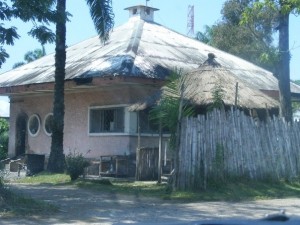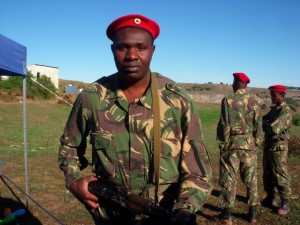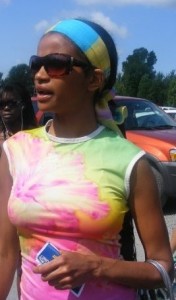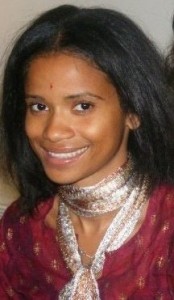(Yasiin Bey – “Mos Def” Repost) WORLD CITIZEN – The Laila E. Interview. PH Exclusive
A message from Yasiin Bey https://t.co/Mf6apCqn2D
— KANYE WEST (@kanyewest) January 20, 2016
(Editor’s Note – Saturday January 23, 2016)
Interview originally published on Aug 8, 2009 by Rylan BranchGreetings Earthlings and Welcome Home.
It’s good to see Kayne being a bit more socially active online than usual, as I was able to listen to the message from the good brother Yasiin Bey regarding his citizenship troubles, and since we are utilizing the Internet something heavy these days to send and receive messages and establish world governments in the process, the decision was made to go ahead and repost this classic interview from 2009 relating to the subject of world citizenship, so that we can add to the list of extremely valuable solutions for many of the world’s most pressing social issues, because if Ye is really cereal about a run for the U.S. presidency in 2020, he along with the current and next 2016 president elect will be in need of wise council.
Enjoy.
(End Note)
(Editors Note- Saturday, 08 August 2009)
The current talk of the town that just wont seem to go away is in regards to the origin of birth for President Barack H.Obama II. Today’s discussion is actually a more in depth look into what is now known as the birthers movement as well as some effective solutions for the issues in question regarding nationality and citizenship. In the name of providing greater transparency as called for by the people, we are fortunate to have with us, someone who actually does fit the description and is fully satisfied with its results, so with out further adieu…
(End Note)
Q: Ok first things first. Let’s have you introduce yourself to our viewers.
A: Hello, my name is Laila Embounou; I go by the name of Laila E. I’m an “Afro Pop” singer preparing my debut album which will be recorded this fall/winter in Paris, France. I’ve been singing and performing since the age of 8, passionate about music, I also have a strong interest in the notion of multiculturalism.
Q: You classify yourself as a WORLD CITIZEN which is a subject of interest for many of the world’s leaders, so the way in which you answer this, question my very well become the working standard by which this citizenship status is measured, so with that said, what is it that defines you as a world citizen, and what are the similarities and differences between a world citizen and an ordinary national citizen?
A: I was first exposed to the notion of
“WORLD CITIZHENSHIP” after reading a quote by Senegal’s first president Leopold Sedar Senghor: “I am a citizen of the universal”. I think that with the rise of globalisation, this concept is something that we will all have to become accustomed to. Despite the fact that the borders are tightening up for security reasons across the globe, we have to realize that the world is becoming smaller and smaller, also with the help of the Internet as you probably know. If you think of all the mixtures of cultures, resulting in children being born with two or more cultural backgrounds, you have to realize that the future will belong to those who are able to look above a simple colour of skin or nationality, but instead have a global vision and perspective on life. In other words, WORLD CITIZENSHIP in my opinion is the ability to assimilate to any culture with an open outlook; it’s a state of mind and a way of life, not so much a status that is given at birth.
Q: Africa was your starting point, which on varying levels will show to be true for many of the people, places, and things that exist in the world, so being from The Republic of Congo, how do you feel that this has impacted your world view in a positive way?

Laila’s First Home In The Republc Of Congo
A: As you said, everything really started in Africa more specifically in Ethiopia (East Africa). I was born and raised in the Republic of Congo (Brazzaville) in Central Africa where I lived until the age of thirteen. I cannot tell you how privileged I feel to have started my life there. There is good and bad in every countries and cultures, Congo is a poor country but there are certain values in the culture that you will not find anywhere else. Some of these values taught me to adapt effectively anywhere I go now as an adult. Africa is the source and because I started my life right at the core of humanity, I have a strong and positive belief that all things are possible with tolerance and a lot of perseverance.
Q:How do you say or write the phrase “Life Is What You Make It” , in your native language?
A: Even though it would be pretentious to say that I am fluent in Lingala, the national language of Congo, I would translate this sentence as :
“bisso nde to zo kela avenir na bisso” .
Q:You at the same time are actually of multi ethnic decent, so please describe your heritage, and how each of those pieces fit together to create the person known as Laila Embounou?
A:My mother was born and raised in Kenya (East Africa), her father was Indian more specifically from the state of Maharastra which Mumbai is capital off . Her mother is half Scottish and half Welsh. My father is from the Republic of Congo where I was born. I am now based in Canada and I am very proud to own a Canadian passport. Growing up with such a mixture of cultures was extremely rich. I naturally learned about certain aspects of my different cultures, I learned both English and French at a very young age, most of all it taught me a lot of tolerance. As a teenager, it was a little hard because there was always the feeling of never belonging to any specific culture fully, but as an adult I now appreciate what I have gained through my heritage: you don’t have to belong to one culture to be a fulfilled person. I am not too familiar with my Indian heritage but I think that if I had to break down the way each part of my heritage has made me the person that I am, I would say that
my African side –
has definitely given me the sense of rhythm , music and my love for people and fun in general.
From my Indian side-
I have inherited my spirituality (not so much religion but spirituality in a more philosophical way).
my European side –
has probably enhanced my drive and desire to succeed no matter what the circumstance! I do realize that these last statements can come out like cliche but it seems to be the best answer to the question.
The Music-
Q: You consider yourself an Afro Pop Artist. For those who are not familiar with the genre of music, how would you describe it?
A:Afro Pop tome, is music based on Afro beats, mixed with anything from RnB to Electro, Hip hop, Latin etc….which explains the term Afro Pop! I want to be one of the pioneers of this new trend. Once again, the world is getting closer and closer in terms of frontiers, therefore music will naturally have to adapt!
Q: Perhaps an odd question, but none the less, why does African Style music tend to be so jubilant and upbeat?
A: Hahaha, this is not an odd question at all, it is actually extremely relevant. African music is always known to be upbeat. I think it’s from the fact that the base of African music is the drum more specifically the “Tam tam”. In Africa, we use music for everything, and most of the time, it’s to celebrate. In the villages, when someone dies, people gather around all night for weeks with upbeat traditional music and chants in order to celebrate their life. Despite the fact that the continent is poor, African people are extremely happy people in general, which explains why the music is most of the time upbeat and jubilant, its a representation of the people and the society.
Q: There is one Artist that is of African decent ,who’s music still hits the spot years after it was created, with an original sound. Her name is Sade Adu, and we have not heard from her since the release of her last album, which was a lengthy time before the prior album was released. What do you think about her music, and what would you like to add to your own music ventures in order to help it expand and evolve?
A:Sade, what can I say? Im a big fan and I cannot think of anyone who isnt. From Nigerian decent, she has influenced a lot of artists, male or female or across the globe. As an 80’s baby, I must say that I listened to Sade throughout my whole childhood, as a teenager and I still listen to Sade. I think that she deserves all the success that she’s garnered. What I like about her as an artist is that she never compromised her style, which enabled her to stay unique and consistent throughout her career, also guaranteed her longevity as a real Diva. No one can ever say that Sade is a mainstream artist, but she sold just as many albums or even more than a lot of singers of her time. Rumor has it that she is releasing a new album in November of 2009. I’ll never be one to try and copy someone’s path or ideas, but as an inspiration and a role model, Sade’s career is a great example of self identity, passion and success. It’s not always necessary to compromise yourself as a singer to get your name out there. A real “STAR”, is someone that you still want to listen to and see years after the hype is over. SADE is a queen and she will always be one!
Worldview-
Q: I recently watched a program on CNBC called Dollars & Danger. It’s about Africa being the new business frontier for the global economy, and they mentioned that the Republic Of Congo was a primary supplier of minerals used for various products.
What are your views about this situation, and what do you believe should remain the same and what should change regarding foreign investments trade, and aid for the Republic Of Congo and the continent of Africa in general?
Rahm Emanuel warned “you never want a serious crisis to go to waste”. Investors believe the current global economic crisis may provide a tremendous investment opportunity in Africa, the world’s richest continent.
A:I think that the fundamental problem here is that the continent of Africa in general possesses a wide variety of natural resources, from oil, to minerals, water, agriculture etc…The West uses more resources than it can produce; therefore it inevitably depends on Africa and others to sustain its consuming habits. The Democratic republic of Congo is a primary producer of minerals along with Sierra Leone and other countries, more specifically for diamonds. It’s important to make the difference between the Democratic Republic of Congo (Kinshasa) and the Republic of Congo (Brazzaville) where I am from, same people originally, but colonized by different empires (Belgium for the first one, French for the second one).
In terms of foreign aid, I have mixed views. Even though I always try to bring a positive outlook to my statements, I must say that the IMF’s liaison with Africa for example remains controversial. Africa has a big debt as we all know. “Lending” money to a poor country is not the way to go, the world has tried this method for years now and it’s obviously not efficient. I think it’s just a vicious circle and we should try something else. As a liberal feminist and an African women, I want to quote the idea of a controversial women writer/economist from Zambia, Dr. Dambisa Moyo. She believes that foreign aid should only be limited to humanitarian needs (such as war or natural disasters) and should not be used for development methods.
My father always says that the best way to help a country is to provide its population with the knowledge and tools necessary to sustain its own economy and livelihood, rather than provide leaders with money to fund certain “development projects”. The population never really gets a real piece of the pie, but instead the leaders benefit the most from the “investment”. Once again, just like in capitalism, the old cliche of “the rich get richer, the poor get poorer” continues its path.
 From my personal experience in the Congo, when you drive down the streets of Brazzaville, it’s very sad to notice the children of government leaders driving big SUVs while women and man are selling peanuts or fruits on the street with babies wrapped around their backs , getting bit by mosquitoes till hours in the night. No functioning street lights are provided and certainly no hope of a better tomorrow for them or their children.
From my personal experience in the Congo, when you drive down the streets of Brazzaville, it’s very sad to notice the children of government leaders driving big SUVs while women and man are selling peanuts or fruits on the street with babies wrapped around their backs , getting bit by mosquitoes till hours in the night. No functioning street lights are provided and certainly no hope of a better tomorrow for them or their children.
Foreign investment trade would be effective if the countries providing the resources were profiting more or at least equitably with the countries conducting the trade. A country rich in oil like The Republic of Congo, and a country rich in minerals like the Democratic Republic of Congo should not have one of the lowest GDPs in the world, when we all know the amount of money that is generated by both industries alone.
Q: Out of all the nations or regions that you have visited or resided in, which do you believe has the best style of living and government system to offer to its citizens?
A: Once again the idea, of world governance and citizenship comes in the picture. Even though it also has its flaws, the Canadian style of living and Government system remains one that I respect the most.
It’s a country built mainly on immigration, yet still rich with a strong backbone of aboriginal background, it has no other choice but to have a system that will function. This country has a good health care system, good education and a multiculturalism system and government that has just proved to be efficient. Immigration policies from different places in the world are trying to follow Canadian policies. Yes, it does get really cold in winter, but as long as you are in Canada, you will generally stand a good chance of having a good, safe and comfortable life.
Q:If you were to be promoted to the rank of Queen Of Planet Earth, what are the first three changes that you would want to see implemented?
A:
1. The continuous education of ALL humans even if just basic, but the emancipation of women most of all is the first thing I would promote. Women give birth to children and generally are the ones who raise them. Children are the future .An uneducated woman is a vulnerable woman. A vulnerable woman settles for less, no need to continue the chain, I’m sure we all know the story.
2. I want to see a day when we can achieve a sort of world governance. If we all depend on each other, they will be no more fights between nations and within nations for resources and power. I am not promoting communism or socialism, I think it’s an ideology that can only be used as a guideline but not as a full on theory. Rather than having a few super powers controlling everything, I want to see a United Nations Parliament where everyone has a say including the population, a world government that will condemn without exceptions the act of corruption, the absence of respect for the rule of law and democracy.
3. Third but not least, I’d govern a world with more peace, a little less capitalism and more respect for the environment and conservation of water especially. If we all consume less and become just a little less materialistic, they will be fewer fights for power and more natural resources available for the next generations.
Q: What are your views on U.S. President Barack Obama? Can you relate to his outlook as a person of and multi ethnic decent?
A: Mr. Obama has proven to the world that anything is possible. Technically speaking, he is not 100% percent black, he is mixed. This is one thing I have in common with him. However, we are attributed a color in the West, if you are not white, you are black, same as in Africa, if you are not fully black, you are white, there is no in between. That is totally fine with me, because like I said, I look at a person for the values that they have and for what they accomplish, I couldn’t care less which category people want to place me in. Mr. Obama is just what the world needs right now. He is well travelled, has a great understanding of International politics, and he even has African origins. What a great way to redeem the reputation of the USA(without meaning to offend anyone) and most importantly to allow the power to regain some sort of credibility before the eyes of the rest of the world. He is hope and as much as his journey will be challenging, I am confident that he will make a difference for the whole world, even if just very little, just by being elected first “black” president, the impact is already made.
Q: If we were to arrange a meeting between he and yourself and his wife Michelle, what would you tell them?
A: Michelle, like they say, along with a great man there is a great woman. I wish them the best and I sure hope they make that change without changing themselves. This White house family seems extremely down to earth. Mr. Obama said that change comes from the bottom up, so please just stay down to earth and remember why they went there in the first place.
Q: What is your favorite thing about Canada and The United States of America?
A: The opportunities that are available in these two countries are outstanding. Anyone can come to this continent and hope for a better life, for peace and security. That is one thing that we end up taking for granted after spending years here. There is nothing better than democracy, when you don’t have to worry about that, you can focus on going that far up the sky with no limits!
Q:Ok, this is the freestyle question, where you get to promote and plug who and or what ever you believes deserves mention ,so I pass the mic to you.
A: Well what can I say, thank you to my family and friends who didn’t give up on me when I was really confused, please stay tuned for details on my new album coming out. You can check out my myspace page if you want to get a little glimpse of what’s to come, thanx to all my musical collaborators in Africa, Canada and Paris and of course to my father who is my biggest fan. Thanx to all you who read this till the end and my respect to Rylan who takes the time to make this website very entertaining yet insightful!
“A passive and ignorant citizenry will never create a sustainable world.”
— Andrew Gaines
Published on Dec 3, 2015
Acoustic Cession performing Live in Pointe Noire November 6th 2015/ Group members: Gael (Guitar and Voice) / JC (Guitar)/ Patrick (Drums)/ Valerie (Keyboard)/ Laila (Voice). Group founded by Gael in Pointe Noire, Rep of Congo
A different perspective to consider.








